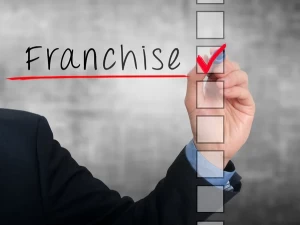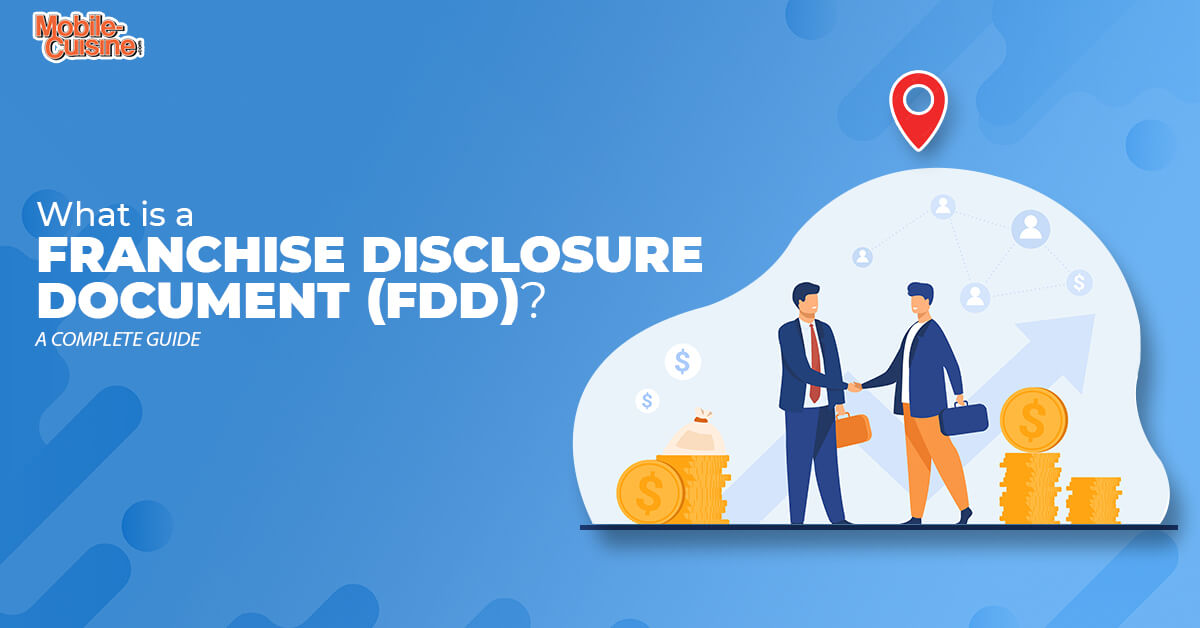Before you sign on the dotted line with a growing franchise, reading, reviewing and understanding the information provided in the Franchise Disclosure Document or FDD is essential. The FDD is your chance to understand how much money other entrepreneurs who are already operating the business actually make in the business. It’s also your chance to find out how many locations went out of business and a better understanding of the fees required to get started.
In short, the FDD gives you the information you need to decide whether or not to move forward with a business opportunity. In this article, I outline the different sections of this document so you have a better understanding on how to use it. If you’re still looking for a franchise opportunity, take our 7-minute quiz to be matched with an opportunity based on your interests.
Page Contents
- What is a Franchise Disclosure Document?
- What sections does a franchise disclosure document include?
- What is the difference between a franchise agreement and a franchise disclosure document?
- Should you have an attorney review before investing in a franchise?
- Why is important to examine the Franchise Disclosure Document?
- What Questions Should You Ask about a Restaurant FDD?
What is a Franchise Disclosure Document?
A Franchise Disclosure Document, commonly known as an FDD, is a document that covers all the necessary information a franchisee needs to know about the franchisor. This includes the company’s team, initial and ongoing fees, the initial investment, other fees to be charged, bankruptcy, litigation history, and all other details that are required by franchise law to be included.
The FDD’s format is required by the Federal Trade Commission (FTC) and is presented to the state before it is presented to the franchisees. The document must be presented to prospective franchisees at least 14 days before they sign the Franchise Agreement to officially go into business.
What sections does a franchise disclosure document include?
A Franchise Disclosure Document contains 23 sections called Items. The following Items are included in this document.
Keep in mind that the FDD is typically a very long document that’s potentially a few hundred pages in length. I recommend working with an expert like a franchise lawyer to help you understand and read this document.
Item 1 – The franchisor and any parents, predecessors, and affiliates
As the title name presents, this section of the FDD discusses the franchisor and the corporate structure of the business. This means you’ll know whether the franchise is a partnership or a corporation. You’ll also be able to find out if the franchise is owned by a parent company or not.
Item 2 – Business Experience
This part gives you an outline of who is the ream running the franchise such as the directors and officers as well as their background and experience.
Item 3 – Litigation
The litigation history of the franchise is written in this section. This includes pending lawsuits both past and current, as well as restrictive actions that the franchise faced or is facing.
Item 4 – Bankruptcy
In this section, if a franchise has filed for bankruptcy, all the necessary details are disclosed here. This includes the bankruptcy history of the franchise’s parents, predecessors, affiliates, and management team.
Not Sure Where to Start? Take Our 7 Minute Franchise Quiz Now.
If the company recently restructured through bankruptcy, you’ll want to understand the reasons why. You’ll also want to get a clear understand on what the strategy is moving forward. Do you believe the companies current strategy will turn things around for the brand?
Item 5 – Initial Fees
This item outlines the fees you will be required to pay before you are permitted to run the franchise. Each fee will be given a description and an example of this is the franchise fee.
Item 6 – Other Fees
Other fees in this section include ongoing or additional fees such as advertising fees and royalty fees. This is indicated as a percentage because some of these fees may depend on the gross sales of your franchise.
Hidden or undisclosed fees can cause disputes between the franchisor and franchisee so this section along with Item 5 will reveal all the fees you need to know.

McDonald’s is a globally recognized franchise.
Item 7 – Estimated Initial Investment
This section will disclose the estimated initial investment to run the franchise. The outline will include several estimates such as the training expenses, initial franchise fee, beginning inventory, equipment expenses, and other expenses needed to get the franchise up and running.
Item 8 – Restrictions on sources of products and services
Franchisors must disclose the revenue they see through sales to franchisees. This includes the supplies, goods, and services that they purchase from official company suppliers. In this section, you’ll be able to read what these are, who the official designated suppliers are, and the revenue derived from these purchases. This section helps franchisees understand the costs to expect for your franchised location.
Item 9 – Franchisee’s Obligations
To keep things transparent, this section will outline the franchisee’s obligations or what is expected of you when you franchise the business. This includes a lot of legal issues such as renewal and termination rights, forum selection provisions, and non-compete and confidentiality requirements.
Item 10 – Financing
Some franchises offers financing for the fees in Items 5 and 6 to franchisees and this section discusses this thoroughly. You as a franchisee will be able to learn what your options are in paying some of the fees such as if you can pay them over time and what the franchisor’s terms are for this setup.
Item 11 – Franchisor’s assistance, advertising, computer systems, and training
In this section you’ll learn what you can expect from the franchisor and what their obligations are to you before and during the opening of the franchise. This includes their assistance to you such as their training programs and providing you with the necessary operating manuals. Other important information such as the software used, point of sale systems, computer systems, and advertising shall be disclosed in this section.
You Might Like: What to Research Before Buying a Franchise – Objective List
Item 12 – Territory
One of the factors that can affect the sales of your business is the location of your franchise. In this section, you’ll know the exclusivity of the territory you are located in. This includes whether or not you will have any competition with other franchisees or if you are allowed to relocate the franchise.
Item 13 – Trademarks
If the franchise you are about to sign up for has any trademarks, this section will disclose all the information about it such as the status of the trademark, whether they’re registered with the United States Patent and Trademark Office and any litigation history surrounding the trademark.
Item 14 – Patents, copyrights, and proprietary information
Aside from disclosing all trademarks in the previous section, this item details all the information on other intellectual property the company possesses.

Outside a Wendy’s franchise restaurant.
Item 15 – Obligation to participate in the actual operation of the franchise business
This section discloses whether or not the franchisee can participate in the daily operations of the franchise. Such restrictions and rules regarding the franchisee’s participation on the management of the franchise are explicitly stated here.
Item 16 – Restrictions on what the franchisee may sell
Usually, only franchisor-approved services and goods are sold in the franchise. This section covers everything you’ll need to know about this and what the limitations are.
Item 17 –Renewal, Termination, Transfer, and Dispute Resolution
As the item title implies, this section covers everything you need to know regarding the renewal, termination, transfer, and dispute resolution of the franchise. This item is important since this is where all your legal rights as a franchisee will be detailed.
Item 18 – Public figures
Some franchises may have someone as a spokesperson or model for the business. This may come in the form of a celebrity. This section will list down any names of those who participates in advertising the business.
Item 19 – Financial performance representations
This section shows an estimated financial performance of the proposed franchise. This is not to be confused with the financial statement of the company although the basis for the financial performance should be reasonable and has substantiation. Representations will include EBITDA (Earnings Before Interest, Taxes, Depreciation And Amortization), gross sales, and other financial data. Remember, as a franchisee, this is only an estimate.

Understand the financial performance of the franchise you’re evaluating.
Item 20 – Outlets and Franchisee Information
In this section, all information regarding the franchised locations will be put into detail here. This will include company-owned outlets and franchised outlets that are open, closed, terminated and transferred in the last three years. This will be shown in table form and will include the contact information of each franchisee.
Item 21 – Financial statements
The franchisor’s audited financial statements for the past two to three years are included in this section. Cash flows, owner’s equity, balance sheets, and statements of operations can be read here.
Item 22 – Contracts
All the legal agreements can be found in this section. Contracts such as the Franchise Agreement can be found here as well as other agreements such as software licensing agreements, product supply agreements, purchase agreements, lease contracts, and more.

Review the finances of a company.
Item 23 – Receipts
This is the last section of the FDD. This is an acknowledgement receipt that documents that the franchisee has received the FDD. This comes in a duplicate format. One is for the franchisee to have and sign and the other is for the franchisor.
All these sections are very important to read so don’t miss any item while going through the FDD.
What is the difference between a franchise agreement and a franchise disclosure document?
A Franchise Disclosure Document is sometimes mistaken as a Franchise Agreement. But these are two very different documents.
The Franchise Agreement that contract that binds the franchisee and franchisor in this business relationship. When you sign this document it allows the franchisee to use the rights, trademarks, operation manuals, and everything else detailed in the FDD. The franchise agreement is the document you sign to agree to go into business.
On the other hand, an FDD is an informational document provided to you. This document details all the financial information you need to know about the franchise. This includes the fees, litigation, financial statements, profitability of units and more.
Should you have an attorney review before investing in a franchise?
Yes, you should consult in someone like a franchise attorney or other financial expert to help read through and understand the information outlined in the FDD.
Once you’ve broken down all the sections of the FDD, it’s easy to understand what the items are and how to read the document. This may also lead you to think that you can go ahead with franchising the business without consulting with a legal advisor.

Have an unbiased attorney review your agreement.
So should you have an attorney review the FDD before investing in a franchise? Though it is not required, it would be better if you consult with a legal advisor. Attorneys will be your main eyes for this. Anything you might have missed on the FDD will be noticed by your attorney which will save you all the hassle if indeed there were outcomes not in your favor.
Why is important to examine the Franchise Disclosure Document?
Remember that once you franchise a business and sign that Franchise Agreement, you are in a legal and binding contract that can have financial consequences should you decide to break it due to circumstances that could have been avoided had you examined the FDD closely.
Franchises have terms of agreement that can run for 10 to 20 years and that’s a long time if you back out early. FDDs are very helpful to franchisees and if you do decide to sign up for one, studying the FDD will help you understand more about the workings of the franchise you’re about to do business with.

Review the FDD with experts who understand this document.
What Questions Should You Ask about a Restaurant FDD?
Aside from just handing you over the FDD, Franchise Development team will sit down with you to discuss more about the franchise. This is your chance to ask questions whether they’ll be included in the FDD or not.
The most important financial questions to ask about a restaurant that you’ll find inside an FDD include:
- What is the company’s revenue history?
- What are the company’s expenses?
- What are the company’s profits?
- What is the company’s profit margin?
- What is the company’s debt load?
- What is the company’s cash flow?
- What are the company’s future financial projections?
The answers to these questions will give you a good understanding of the company’s financial health. You can use this information to make an informed decision about whether or not to invest in the company.
You Might Like: What Franchises Does Shaq Own Right Now?
In addition to these questions, you may also want to ask about the following questions about the future prospects of the company:
- What are the company’s plans for growth?
- What are the company’s competitive advantages?
- What are the company’s risks?
- How do you protect franchisees if their franchises are performing poorly?
- Are there any senior management leaving the company?
- Can the terms of the franchise still be negotiated?
By asking these questions, you can get a better understanding of the company and the risks involved in investing in it.
Here are some additional tips for evaluating a restaurant FDD:
- Get help from a financial advisor. A financial advisor can help you understand the financial statements and make an informed decision about whether or not to invest in the company.
- Do your own research. Don’t just rely on the information in the FDD. Do your own research to learn more about the company and the industry.
- Be patient. It takes time to evaluate a restaurant FDD and make an informed decision. Don’t rush into anything. In most cases, you’ll be making a multi-million dollar investment so be thoughtful before you invest. There’s no rush.
- Talk to other franchisees. Some franchisors let you meet their franchisees so you can ask them questions about the business. By doing this due diligence step, you’ll be able to learn about some of the more candid challenges of the company from someone in the business already.
I hope this guide has provided a broad overview about the Franchise Disclosure Document to help you in your future franchising ventures.





